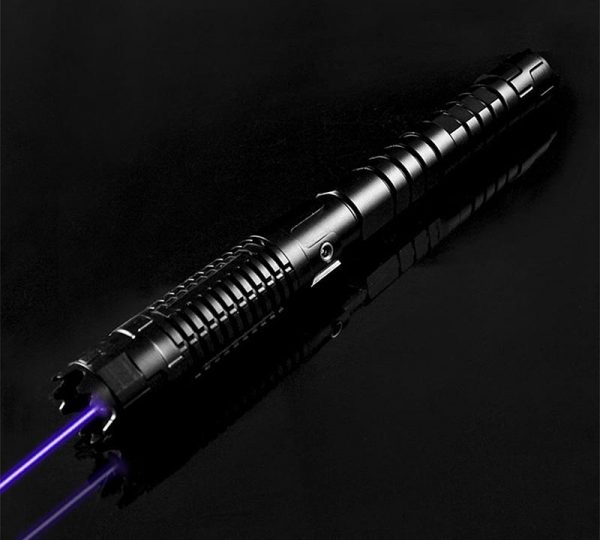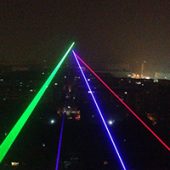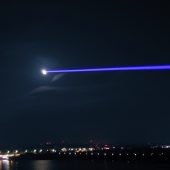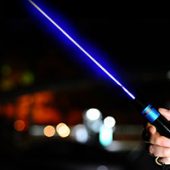There is no specific threshold between a powerful laser beam, a potentially hazardous one, and a clearly dangerous beam. The following are some guidelines.
Bright Light Hazard
Even a 5 milliwatt laser pointer can be a potential hazard if the green laser light distracts or temporarily flashblinds a person such as a pilot. This is why you NEVER aim a laser pointer at an aircraft, or the driver of a vehicle.
Eye Hazard
For direct damage to the eye, the exact severity will be due to many factors: beam power, exposure time, beam/eye relative motion, distance from the laser, retinal injury location, and a person’s physiological/genetic susceptibility to eye injury (some people are more sensitive than others).
If a person deliberately stares into a laser, even a small 1 milliwatt beam could cause a spot on the retina.
Safety standards are based on a person blinking and/or turning away from a bright light. Taking this into account, an accidental exposure to a 5 milliwatt beam is considered tolerable, as long as the person is not overriding their blink reflex.
After some point, even blinking and moving isn’t fast enough to prevent injury. As a very rough approximation for laser pointer use, above 10 milliwatts the potential hazard from general use outweighs the benefit of a brighter beam.
At around 100 milliwatts, an accidental exposure at close range may cause a change to the retina which can be defined as an eye injury. The victim may or may not notice it depending on where the spot is on the retina. The injury may heal after a few days or weeks if the exposure is not too severe.
Skin Hazard
At around 150 milliwatts, the beam from a laser can be felt on the skin, depending on the beam focus, skin color (absorption), etc. At roughly 500 milliwatts, the blue laserbeam begins to be a skin burn hazard if the person is within a few meters of the beam.
Incidentally, even powerful industrial lasers cannot cause deep burns, severed limbs, gun-type injuries or other effects seen in science fiction movies. While multi-watt laser beams are definitely serious eye hazards, they are ineffective at causing incapacitating body injuries.




